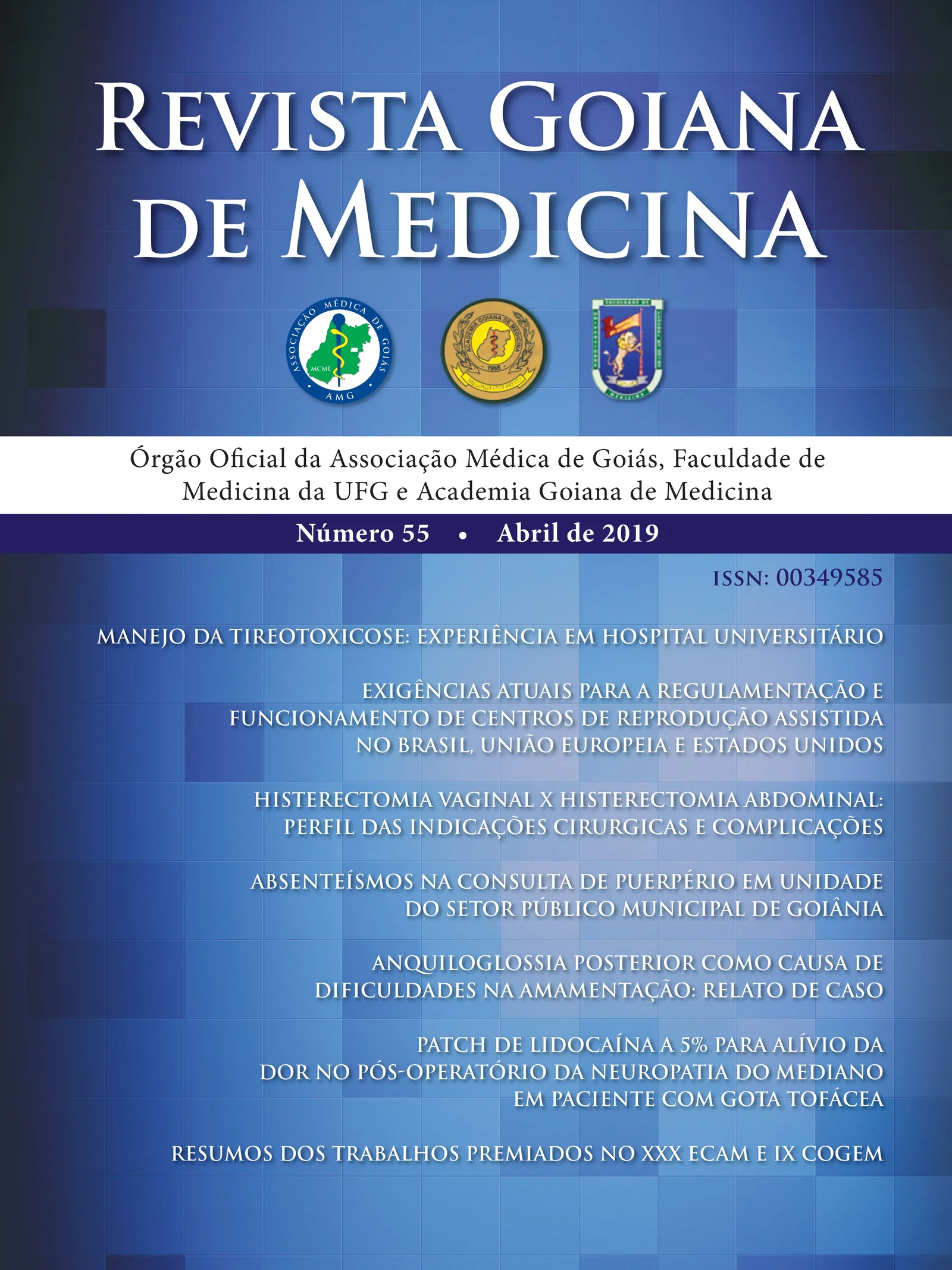Absentism in the consultation of puerpério in a unit of the municipal public sector of Goiânia
Keywords:
ABSENTEEISM, PUERPERIUM, PUBLIC SECTORAbstract
Introduction: The puerperium is the stage that begins soon after delivery with the removal of the placenta and ends when the body is able to return as early as possible to the state before the gestation. In the health services, the puerperium began to be included as a period that deserves special quality and humanized attention, being essential for maternal and neonatal health. Objective: To raise absenteeism rates in puerperal consultations in a public maternity hospital in the city of Goiânia. Methods: A cross - sectional ecological study with a retrospective and descriptive design. Data collection was performed from the Wareline program used for hospital management. Data from the cost center were used through the filtering of outpatient visits in gynecology and obstetrics for puerperal return during the period from January 2016 to December 2018. Results/Discussion: These results corroborate a research that demonstrated the gap in the planning and execution of the care, triggering difficulties in the effective consolidation of care in the puerperal phase, because the participants of the study, although they have demonstrated to recognize the importance of the postpartum review, returned in number to the health service in search of this assistance. The determinants of mortality related to the puerperium can be avoided through public health actions directed to this period, as well as those associated with pregnancy and childbirth, which will often manifest in the puerperal period, requiring early identification, the necessary conduct. In addition, by encouraging return and controlling absenteeism, it directly impacts the greater control of public money, which guarantees greater coverage of supply and suppressed demand. Conclusion: The absenteeism rate reached 54% in the consultations of puerperium.


